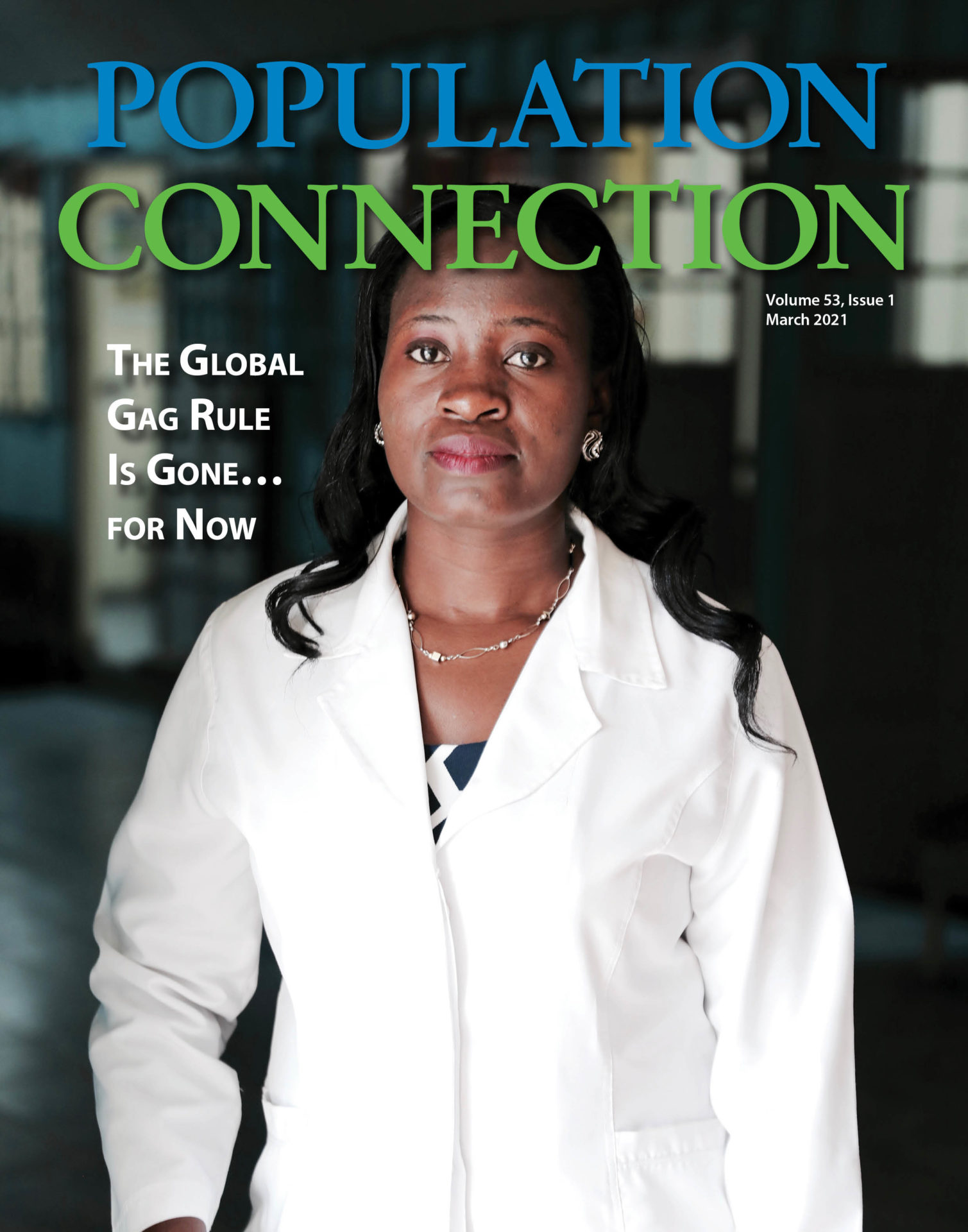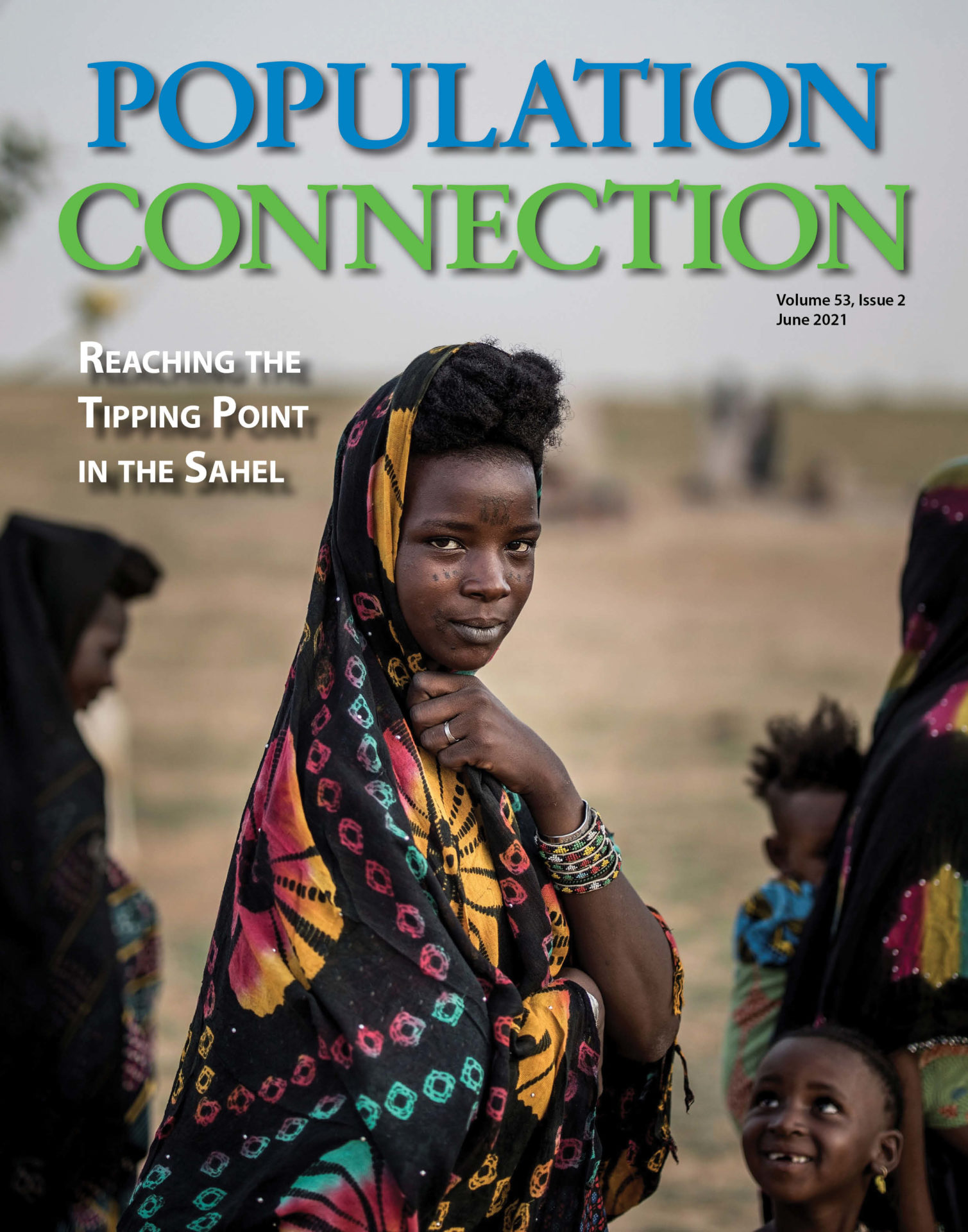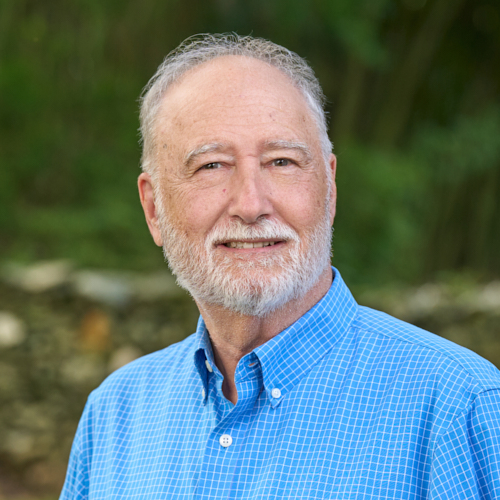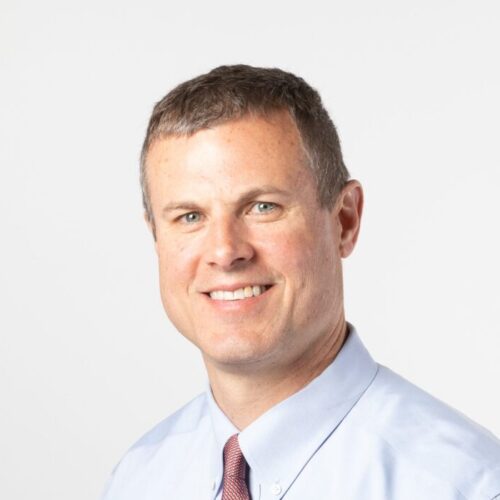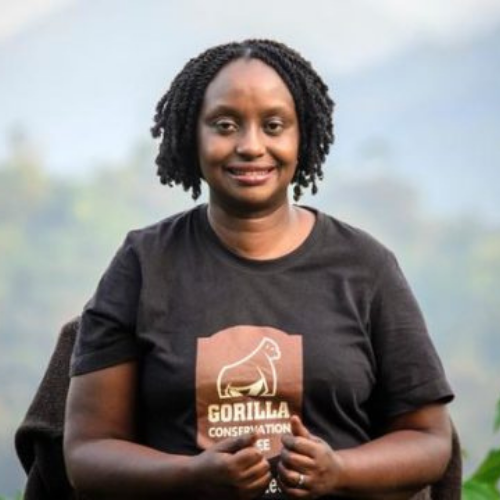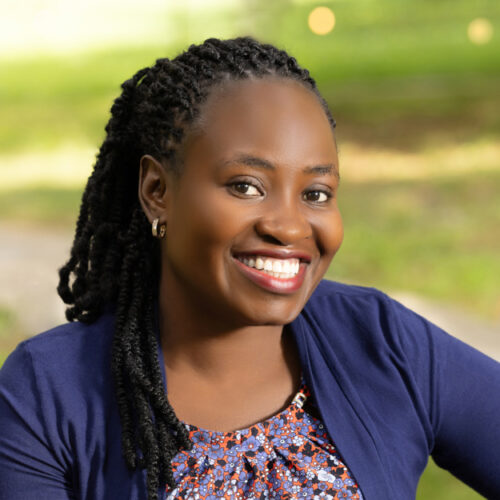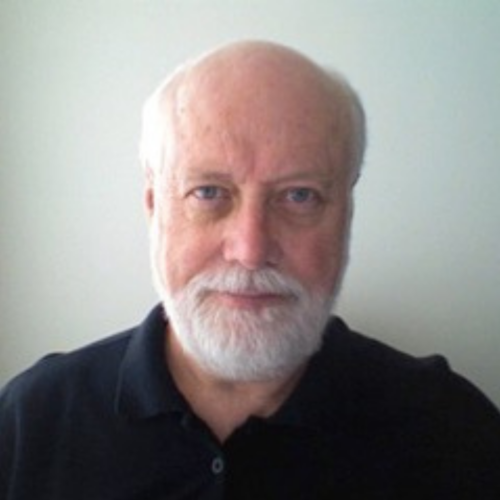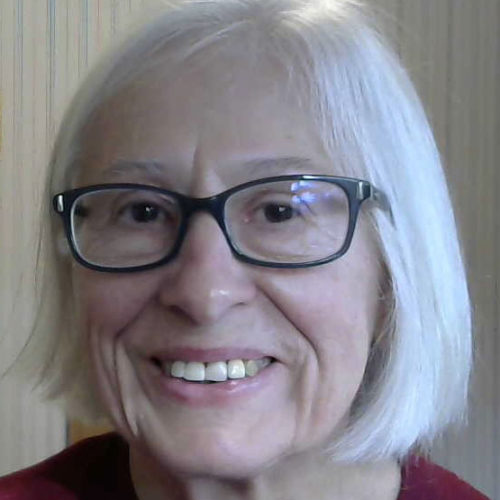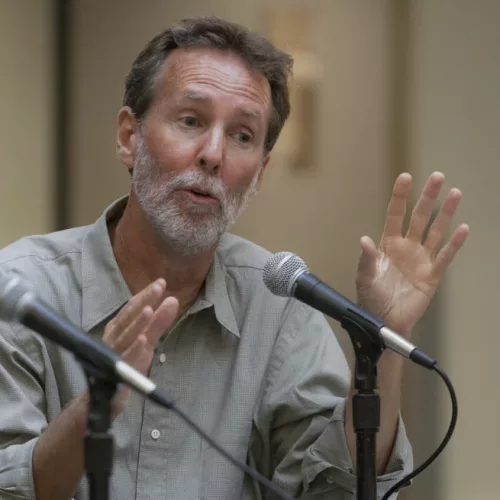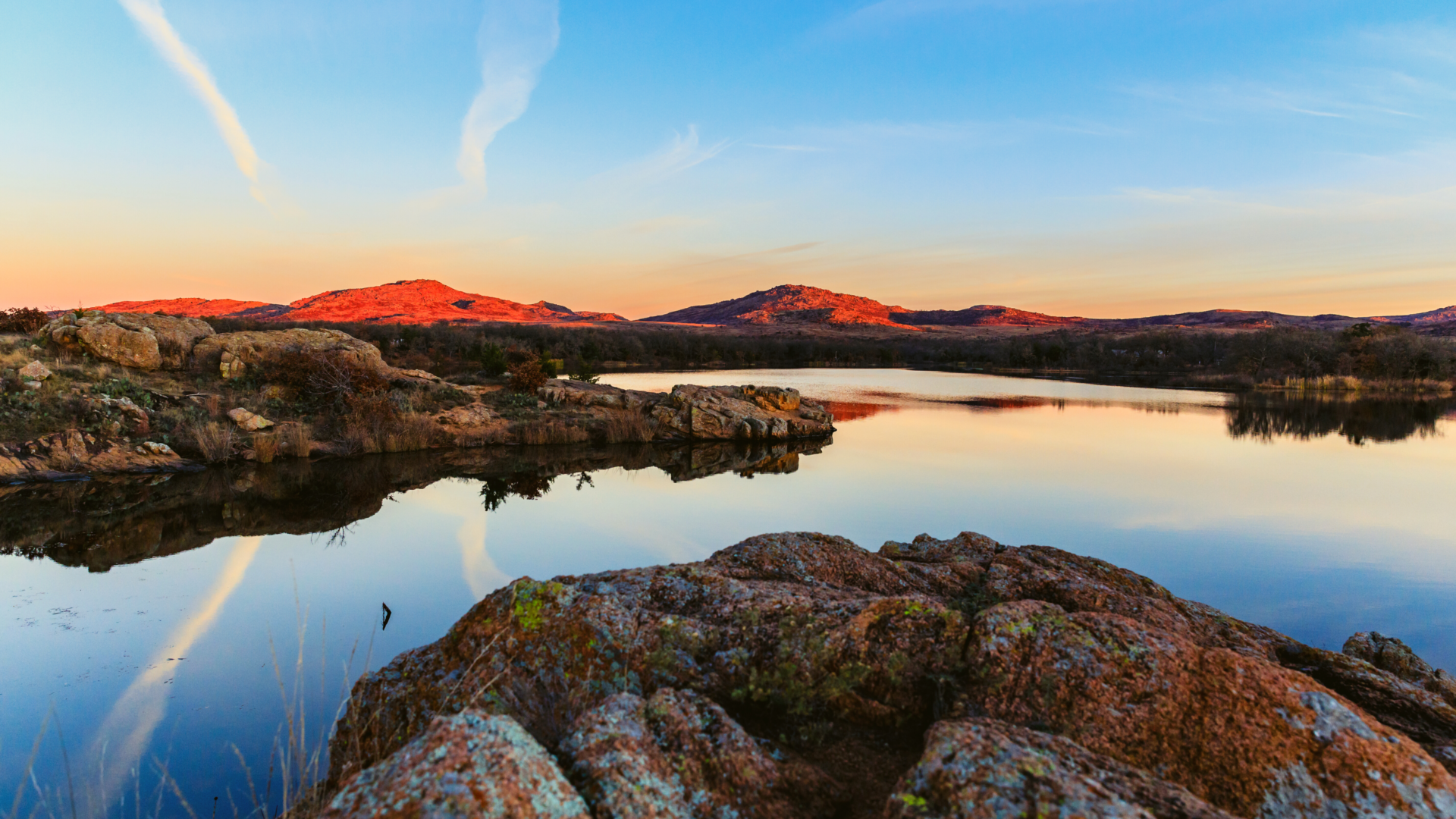
Thanks to our incredible network of members and supporters, we had another successful year raising awareness and educating others on the pressing issues our world is facing due to rapid population growth. We wrapped up the year with a review from Population Education and Advocacy staff who discussed our progress integrating population issues into secondary and higher education curricula and our continued fight to protect reproductive rights worldwide.
The Global Gag Rule: Gone for Now
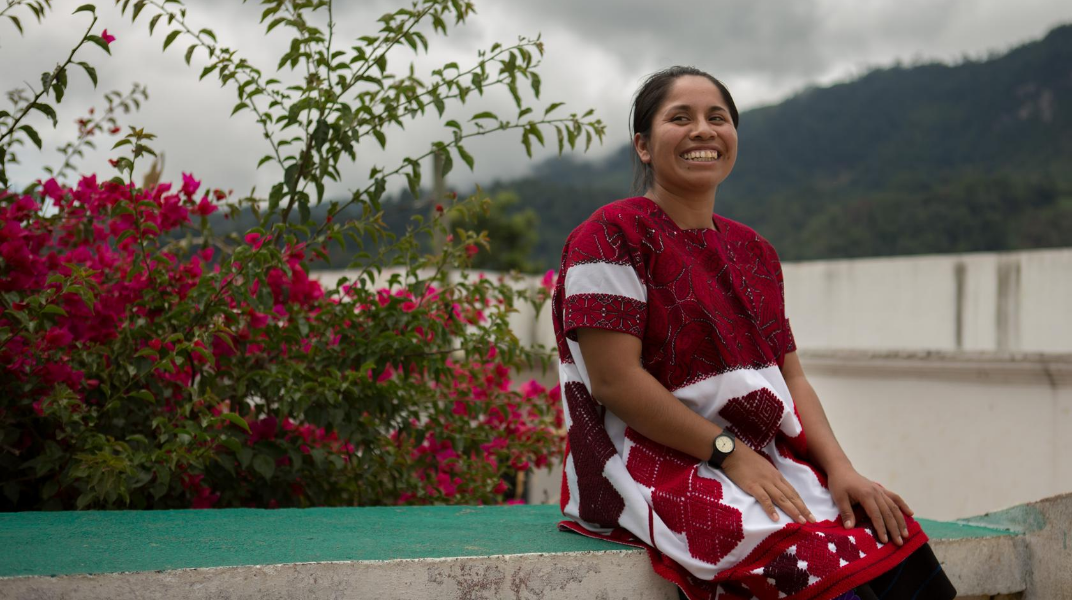
Shortly after he took office in January of 2021, President Biden rescinded the Global Gag Rule—rolling back the deeply damaging restrictions of the Trump administration and offering a ray of hope after four years of stalled progress expanding much-needed international family planning funding.
While it’s gone for now, the Global Gag Rule remains one of the most damaging policies ever enacted on foreign assistance funding. When in place, it prevents foreign organizations that receive U.S. global health assistance from providing information, referrals, or services for abortion—even when abortion is legal in the country they operate in, and even if they use their own, non-U.S. funds for these services. Treated as a political football, the Gag Rule has been reinstated by Republican presidents and rescinded by Democratic ones since 1985. This has created an unstable funding landscape for organizations that rely on foreign assistance from the United States, the world’s largest global health and family planning donor. The threat of the Gag Rule has made long-term planning for vital public health initiatives even more challenging.
Passing the Global HER Act could change all of this by permanently repealing the Global Gag Rule. This would have far-reaching and lasting implications for the rights of women and girls all over the world—and for global population stabilization.
We dedicated our March 2021 issue of Population Connection magazine to this deeply important event and featured on-the-ground stories from two members of our Board of Directors: Melvine Ouyo, Founder and Executive Director of Hope for Kenya Slum Adolescents Initiative (HKSAI), and Dr. Rodrigo Barillas, former Executive Director of WINGS Guatemala. Click on the link to the right to read the entire issue.
Advocacy Update: Welcoming a New Administration
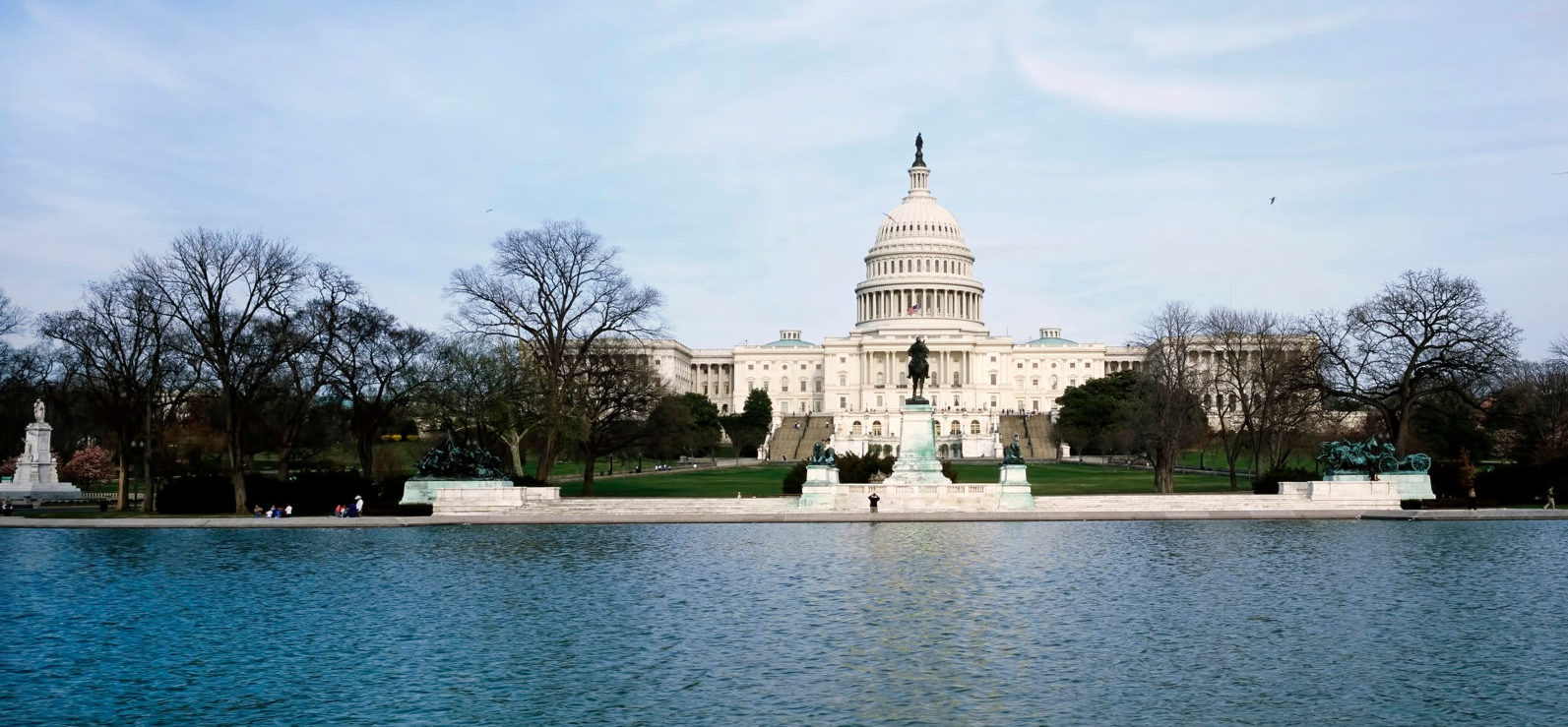
The results of the 2020 election marked a distinct shift in the political landscape for reproductive health and rights. A friendly administration in the White House and supportive majorities in the House and Senate gave us the chance to make real progress for the first time in four years.
Capitol Hill Days
Capitol Hill Days 2021 took place in late March—the event was held as an all-digital event for the second year in a row, due to the pandemic. Sessions included: Voices From the Frontlines: Advocacy and Action for Reproductive Health Worldwide session; Population, Reproductive Health, and Climate Resiliency: Views From Latin America and East Africa; and a keynote given by Congresswoman Jan Schakowsky: Pushing Forward a Bold Agenda on International Reproductive Health and Rights. Participants met with their senators and representatives to advocate for the permanent repeal of the Global Gag Rule and for a greater U.S. investment in international family planning and reproductive health services.
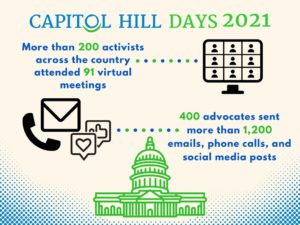
FULL RECAP OF 2021 CAPITOL HILL DAYS
Summer of HER
Our fourth annual Summer of HER program gave 25 young activists from around the country a unique opportunity to develop their skills as grassroots activists for reproductive rights.
Throughout the eight-week program, the fellows attended weekly sessions, workshops, and trainings with leaders from the reproductive health and rights community. During the coalition-wide Week of Action to End the Global Gag Rule, fellows circulated petitions; called, emailed, and tweeted at their members of Congress; and attended our June National Volunteer Call. The call featured Dickson Okong’o, the founder and Executive Director of Stretchers Youth Organization in Mombasa, Kenya, and Caitlin Horrigan, the Director of Global Advocacy at Planned Parenthood. Attendees learned about the extremely harmful impacts of the Global Gag Rule on the ground as well as the advocacy pathway to passing the Global HER Act.
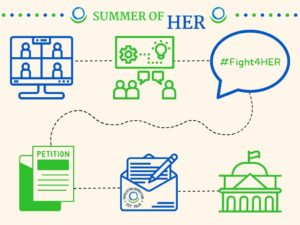
FULL RECAP OF 2021 SUMMER OF HER
Examining the Intersections Between Population and Climate Change

Population Connection draws the links between global population growth and the countless environmental challenges facing us—we educate people of all ages and motivate them to take action. We’ve made steady progress over the past 50+ years, educating young people on population concepts and advocating for expanded access to voluntary family planning programs for people everywhere. Nearly 100 countries have achieved replacement rate fertility since our founding in 1968—up from four countries at that time.
Today, climate change is the most critical challenge facing our planet. What once seemed like an abstract, far-off threat is undeniably here as we contend with more severe weather, extended droughts, warmer oceans, widespread heatwaves, and more. Burning fossil fuels and deforesting vast areas over the last two centuries has increased concentrations of greenhouse gases in the atmosphere to catastrophic levels. Understanding how rapid global population growth contributes to global warming can help us to confront our world’s climate crisis.
As people in low-income countries achieve improvements in their standards of living, those countries’ carbon footprints will grow—both from a necessary rise in per capita emissions and from population growth. And in middle-income countries—which make up the bulk of the world’s population—living standards are rising as well, as they should. But with development comes higher emissions.
Nearly half of the world’s pregnancies are unintended, and 218 million women in the developing world want to prevent pregnancy but aren’t using modern contraceptives. To lessen the impacts of global population growth on carbon emissions and biodiversity loss, we must implement human rights-based policies to extend family planning and reproductive health care to people worldwide—including in the United States, where per capita emissions are among the highest in the world and where 45% of pregnancies are unintended.
We chose to focus on climate change and how it is impacting one of the places most vulnerable to climate shocks—Africa’s Sahel region—in the June 2021 issue of Population Connection. The Sahel region of sub-Saharan Africa suffers from drought, depleted soils, rising seas and overfishing along the coasts, and chronic hunger. Climate change is a “threat multiplier,” contributing to migration and civil conflict. Another threat multiplier? Extremely high fertility and population growth rates. Early marriage and childbearing, low educational attainment, and unmet need for family planning are common. The United States should invest more in helping to tackle these problems, for the sake of women and girls, their families, and their futures.
Population and Climate Studies for Higher Education

Led by Senior Analyst Hannah Evans, this initiative invited over 24,000 professors across the country on to use our growing library of resource materials in their classrooms. Hannah is also available for live presentations on these topics directly to their students. She virtually presented to 38 college classes, helping prepare young people to work toward rights-based population interventions as solutions for environmental challenges.
We’re also employing social media marketing to increase awareness of the many connections between population and climate change. We shared more than 50 posts on population and climate change via Instagram and 300+ posts via Twitter throughout the year.
We will continue sharing the critical information that empowering women and girls through formal education and full access to family planning options is one key way to address climate change. In fact, these interventions, combined, form the second most powerful way to tackle climate change—and we don’t have a moment to lose! For more information, please contact Hannah Evans at hevans@popconnect.org.
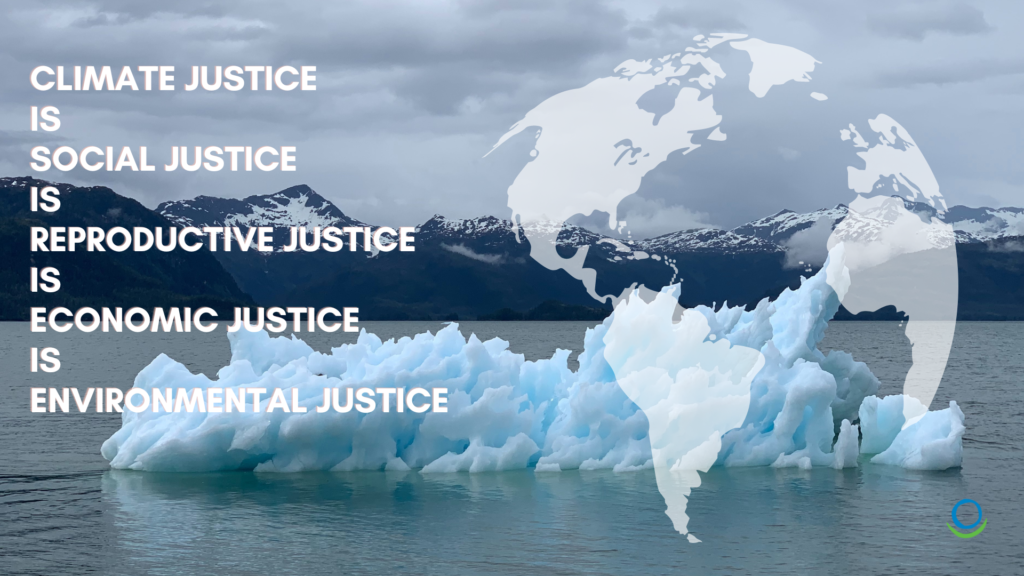
Population Education Reaches the Next Generation

First held in 2011, our annual World of 7 Billion student video contest is now a perennially popular event that fields entries from all over the globe! In 2021, we received 3,000 entries submitted by students from 44 countries and 49 U.S. states and territories.The 2020-2021 contest topics were:
- Promoting environmental justice
- Reimagining Industrial Systems
- Strengthening global health
The high school winners for each category are featured below (one of the three winners requested to not be featured online). You can see all of the winning entries on the World of 7 Billion website here! We hope you enjoy viewing these videos as much as we did!
Promoting Environmental Justice
By: Rana Duan
Rana Duan was a senior at Dulles High School in Sugarland, Texas, at the time of her video submission. She was born in Ohio and lived in Michigan for a few years before settling in Texas. Rana is planning on attending the University of Texas at Austin and majoring in economics. She is hoping to understand the economic system and help to play a role in reforming it. Rana would like to work for the government one day and create policy around important environmental issues. Of the three topics, Rana chose to create a video about Promoting Environmental Justice due to the rigorous research she conducted on inequality in climate change in her environmental science class. As a result, she wanted to explore the topic further. As a third-time winner, Rana recommends that future participants find a topic they’re interested in because it makes the research easier.
Strengthening Global Health
By: Alaina Smith
Alaina Smith was a senior at Mount Lebanon High School in Mount Lebanon, Pennsylvania, at the time of her submission. She plans to attend the College of William and Mary where she will study sociology and medicine in order to meet her future career goal to work in public health policy. Alaina learned of the contest from an online search when it came up on a scholarship website. She was inspired to submit a video because she is interested in how global health relates to population growth. Of the three topics, Alaina chose to address Strengthening Global Health because she is passionate about women’s health and advocacy. She advises future contest participants to write on a topic they’re passionate about because it will make the research and video formatting process easier. The contest was an opportunity for her to tackle her interest in both topics while also addressing the connection to population growth.
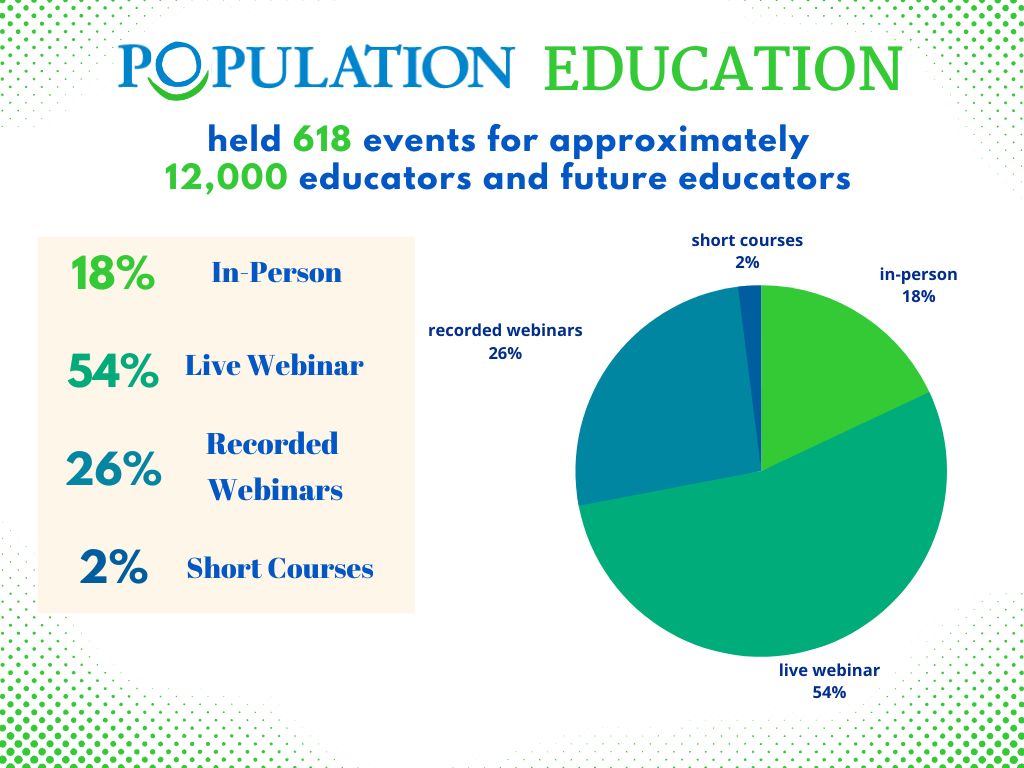
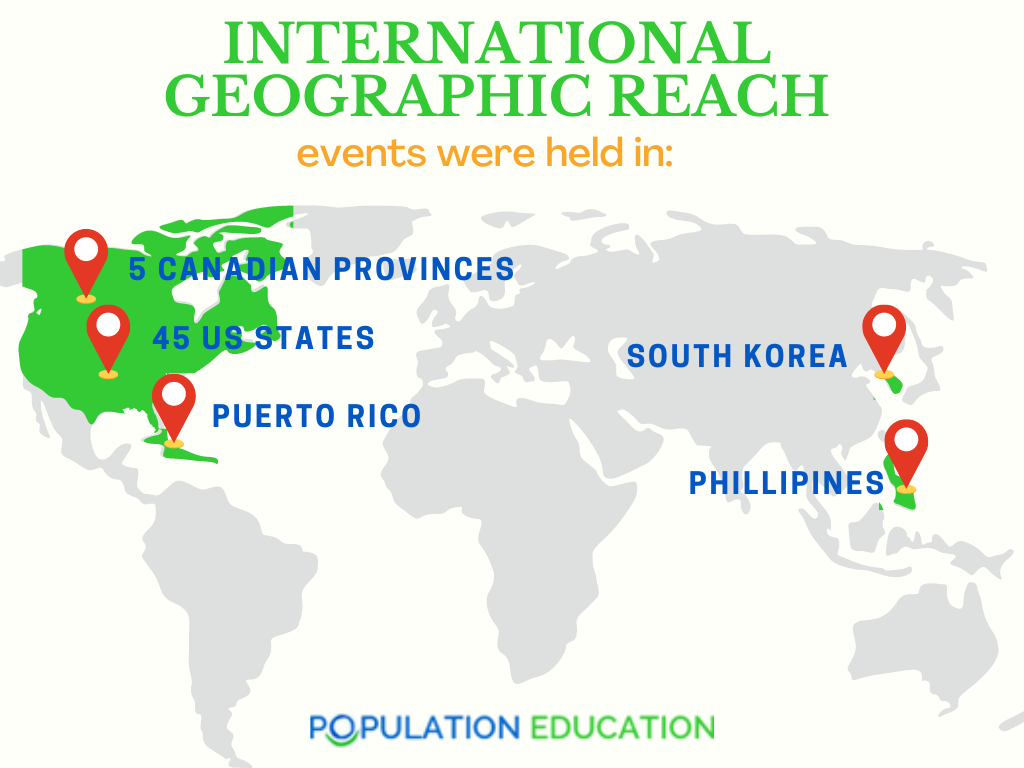
Membership Relations Events: Focus on People and the Environment

Membership Relations continued hosting Virtual Events in 2021, engaging with over 1,500 supporters who were eager to broaden their understanding on global population issues, connect with other passionate activists, and stay up-to-date on our work at Population Connection. Throughout the year we hosted 21 different events, including film screenings and a trivia night, and we even started a new book club!
Earth Day Passport Series
We held our second all-virtual Earth Day, hosting a month-long “Passport Series” of expert voices from around the world and a screening of the uplifting documentary 2040. In total, over 450 supporters joined us for at least one virtual Earth Day event! Speakers in our Passport Series included:
- Dr. Michelle Dubón, Medical Director of WINGS, who spoke at length about the organization’s provision of family planning services to Guatemala’s rural and marginalized people.
- Riju Dhakal and Sajja Singh of YUWA, a youth-led organization based in Nepal, who discussed YUWA’s work, which is centered around sexual and reproductive health and rights activism.
- Alisha Graves, Executive Director and Founder of OASIS, and Lucie Ouedraogo, former Sahel Leadership Program Fellow at OASIS, who presented on how family planning, population, and environmental issues intertwine in the Sahel region in Africa.
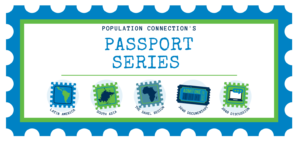
Page Turners Book Club
We were thrilled to launch our “Page Turners” Book Club in 2021 to have a platform to discuss the latest publications that focus on population dynamics, sustainable development, and environmental issues with our dedicated supporters. By the end of 2021, we had a steady group of 76 supporters that tuned in for one or more of the meetings. It was an incredible way to facilitate meaningful conversations and dialogue with some of our most passionate population enthusiasts! Books discussed include:
- One Billion Americans – By Matthew Yglesias
- The Human Tide: How Population Shaped the Modern World – By Paul Morland
- Under a White Sky: The Nature of the Future – By Elizabeth Kolbert
- Countdown: Our Last, Best Hope for a Future on Earth? – By Alan Weisman
- The New Climate War – By Michael E. Mann
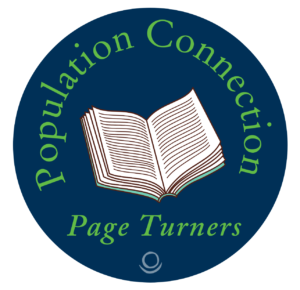
Speaker Series
Members also joined us for our Summer and Fall Speaker Series, featuring a diverse group of experts from around the world. Speakers included:
- Kristen Patterson, Director of Drawdown Lift at Project Drawdown
- Nathalie Simoneau, Director of Gender and Social Inclusion at World Wildlife Fund
- Terry Spahr, Executive Producer of 8 Billion Angels, Founder and Executive Director of Earth Overshoot
- Professor Elizabeth Andrew-Essien, Department of Environmental Resource Management at the University of Calabar in Calabar, Nigeria
- Professor Kyle Whyte, Willis Pack Professor of Environment and Sustainability at the University of Michigan
- Karen Gaia Pitts, Project Coordinator for Transition Earth
- Joshua Mirondo, Communications Team at Reproductive Health Uganda
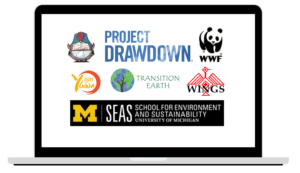
Dispelling Myths About Population Growth and the Economy
In many developed countries—Japan, South Korea, Italy, Spain, Germany, Canada, and the United States among them—fertility rates are below replacement rate. It’s far from cause for alarm despite claims by “birth dearthers” that we face social and economic catastrophe due to lower birth rates. With global population still growing annually at a rate of nearly 1%, the world continues to add tens of millions of people a year. The recent slowdown in the U.S. birth rate has resulted in much hand-wringing about our nation’s future. Instead of yielding to these dark prognostications, let’s take advantage of this situation, which could be more optimistically viewed as an opportunity. There are some clear advantages to the decline in U.S. births—which is occurring in all age groups of women 15-44 but is most pronounced among teens. And the challenges that slower population growth may pose can be successfully addressed by disrupting the status quo when it comes to our investment in future generations of workers and tax-payers.
Indeed, if the question is where the productive workforce needed for our nation’s future will come from, let’s focus on lifting up the millions of children here in the U.S. who live in poverty—children who disproportionately represent communities of color.
To address the ongoing media attention to this issue, John Seager, President and CEO of Population Connection, gave interviews to radio stations across the country during the summer of 2021 on the topic of lower fertility and slower population growth in the United States. The complete list of his interviews is available here.
Partnership Spotlights
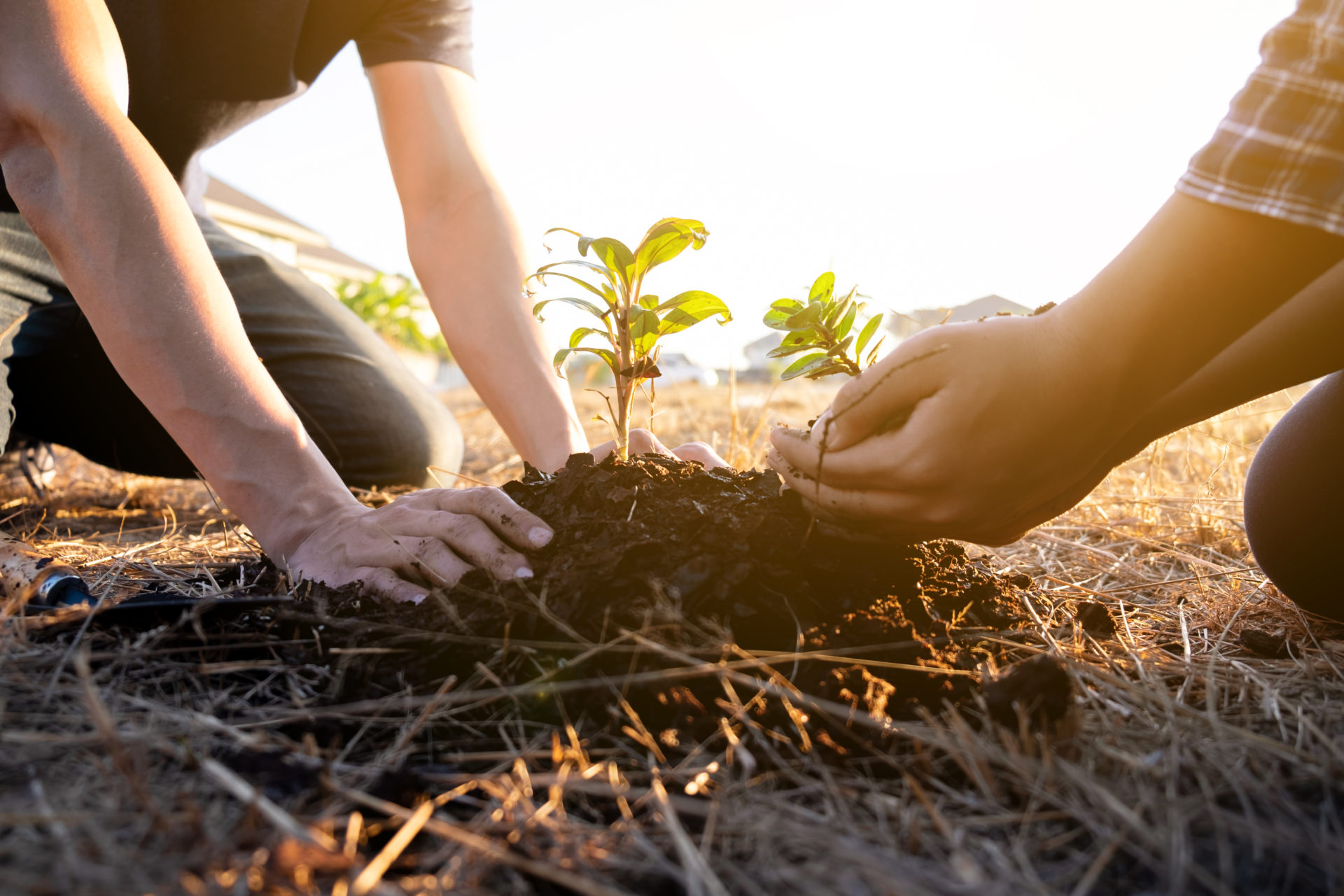
Population Connection is proud to partner with a small but growing number of international organizations working on the ground in areas of the world most in need of expanded access to public health and family planning services. These incredible organizations have a reach and impact far larger than their size suggests, and we are honored to work alongside them for a more just and sustainable future for all of our planet’s inhabitants.
Turimiquire Foundation
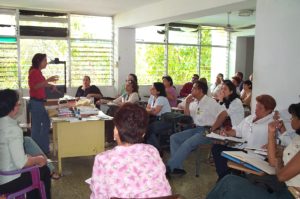
The mission of Turimiquire Foundation (which means “Seat of the Gods” in Indigenous Carib) is to improve the lives of the marginalized rural populations of northeastern Venezuela by offering a range of programs focused on reproductive health and family planning, public education, rural livelihoods, poverty reduction, and environmental conservation. In response to the ongoing social, political, and economic crises in Venezuela, now compounded by Covid-19, the foundation also provides humanitarian aid.
The Turimiquire theory of change is the Population, Health, and Environment (PHE) model, which holistically addresses challenges in developing, vulnerable, and remote communities that have a range of challenges. PHE addresses these challenges with a multi-pronged approach, improving access to health services (especially family planning and reproductive health), while helping households improve livelihoods, manage natural resources, and conserve the ecosystems critical to people’s day-to-day survival. Turimiquire’s work has shown that using the PHE development model is more effective than following a single focus effort in improving people’s lives.
Turimiquire Foundation is based in Cambridge, Massachusetts, and raises funds which are disbursed by Fundación ServYr: Sociedad de Educacion Rural, Vida y Reproduccion. The Fundación ServYr then oversees the actual programs on the ground in Venezuela. Turimiquire’s work has shown that women who have access to family planning and reproductive health care can control their fertility and their lives. Fundación ServYr is the only non-profit of its kind in northeastern Venezuela and currently serves the rural populations in three counties in the state of Sucre. From its incorporation in 1996 to the present, it has helped to improve the lives of more than 90,000 low-income people.
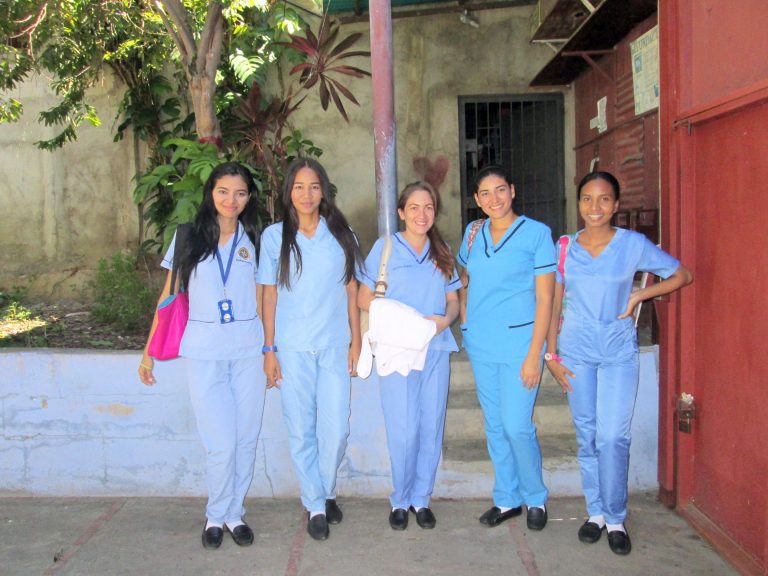 Turimiquire’s direct service programs include providing family planning services (reproductive health education, contraceptives, medical procedures, logistic and administrative support) along with reproductive health workshops.
Turimiquire’s direct service programs include providing family planning services (reproductive health education, contraceptives, medical procedures, logistic and administrative support) along with reproductive health workshops.
Its other activities include overseeing a rural education program (including high school and college scholarships to local youth); supporting community development initiatives that can improve the local quality of life (including building and maintaining essential infrastructure); and distributing humanitarian aid to ameliorate the social and economic crises in the country.
Turimiquire FoundationLemur Love
Madagascar-based Lemur Love’s mission is to “Protect lemurs. Empower women. Further science.”
Dr. Marni LaFleur started Lemur Love as a way to protect lemurs in southwestern Madagascar, after witnessing deforestation and poaching of wild ring-tailed lemurs. She now recognizes that conservation is much more about humans than animals and that the historical, political, and social influences within Madagascar are important considerations to conservation agendas.
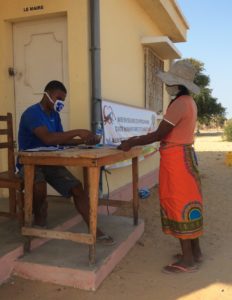 The fifth-largest island in the world, Madagascar is located in the Indian Ocean about 250 miles off the coast of southeast Africa. The island is home to 200,000+ known species, more than 80% unique to the island. Madagascar boasts 100+ kinds of lemurs, 300+ frog species, and 33 species of tenrecs, miniature hedgehog-like animals. There are more than 11,000 endemic plant species. It is also one of the poorest countries in the world. More than 80% of those under 18 live in extreme poverty, and children are among the hardest hit by hunger, sickness, and need. With a gross domestic product per capita of US$422, the country is ranked 164 out of 189. The Malagasy people must rely on the ecosystem to live, leading to environmental degradation and biodiversity loss. The most critical issues threatening the region are forest clearing, land conversion, and habitat alteration—all problems tied to human beings.
The fifth-largest island in the world, Madagascar is located in the Indian Ocean about 250 miles off the coast of southeast Africa. The island is home to 200,000+ known species, more than 80% unique to the island. Madagascar boasts 100+ kinds of lemurs, 300+ frog species, and 33 species of tenrecs, miniature hedgehog-like animals. There are more than 11,000 endemic plant species. It is also one of the poorest countries in the world. More than 80% of those under 18 live in extreme poverty, and children are among the hardest hit by hunger, sickness, and need. With a gross domestic product per capita of US$422, the country is ranked 164 out of 189. The Malagasy people must rely on the ecosystem to live, leading to environmental degradation and biodiversity loss. The most critical issues threatening the region are forest clearing, land conversion, and habitat alteration—all problems tied to human beings.
Lemur Love’s conservation agenda is simultaneously animal-centric and human-focused and works from the premise that human well-being is irrefutably intertwined with sustainable biodiversity. But conservation efforts will only work with the help and advocacy of grassroots Malagasy organizations and people.
Lemur Love aims to improve local standards of living while preserving forests and the flora and fauna within. Efoetse is a village of roughly 800 households (4,600 people) and is the nearest human settlement to Lemur Love’s primary lemur research site, Tsimanampetsotsa National Park (TNP). It is devoid of the daily necessities like running water, sanitation, and electricity.
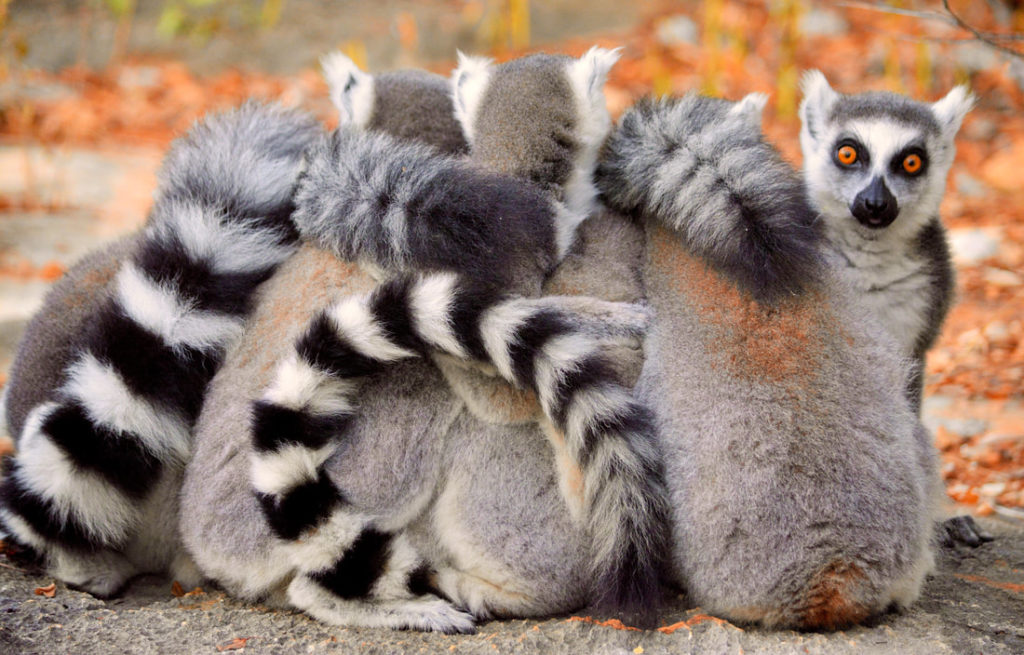 This region of Madagascar is arid and experiences frequent droughts. Food insecurity is high in Efoetse as local agricultural resources are scarce and insufficient, and goods imported from other regions of Madagascar are often expensive.
This region of Madagascar is arid and experiences frequent droughts. Food insecurity is high in Efoetse as local agricultural resources are scarce and insufficient, and goods imported from other regions of Madagascar are often expensive.
A recent Lemur Love project consisted of partnering with Efoetse villagers, the Madagascar outpost of Barefoot College International, and the Malagasy Ministry of Energy and Hydrocarbons to bring electricity to the village. Since 84% of Madagascar lacks electricity, Barefoot College is training older women as solar engineers so they can implement a solar grid in Efoetse and create a groundbreaking community-run program where households have access to electricity.
Lemur Love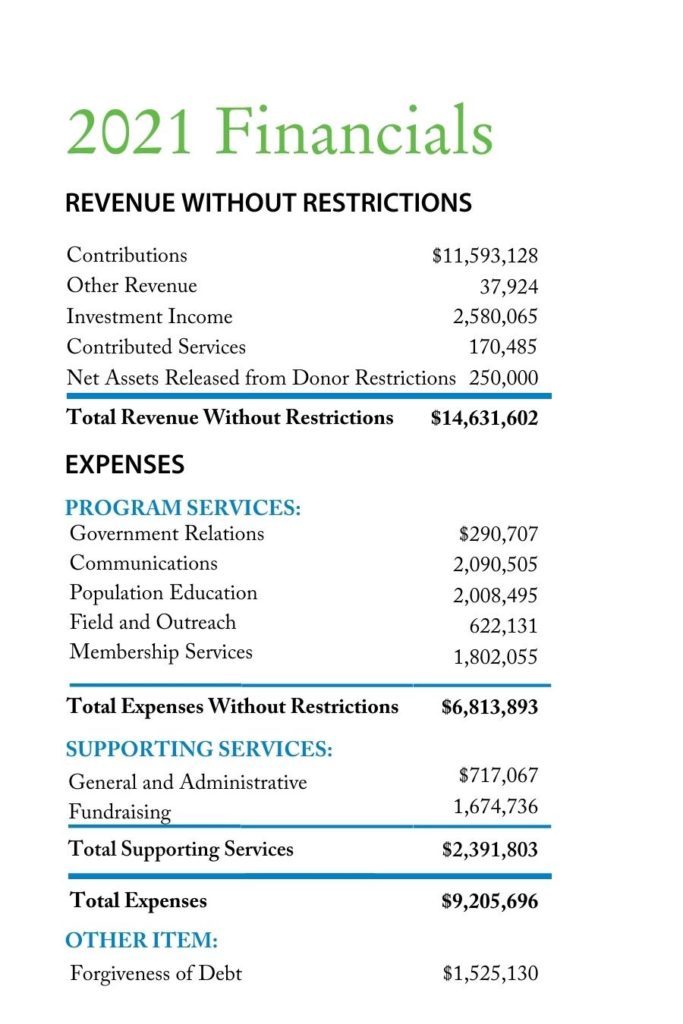
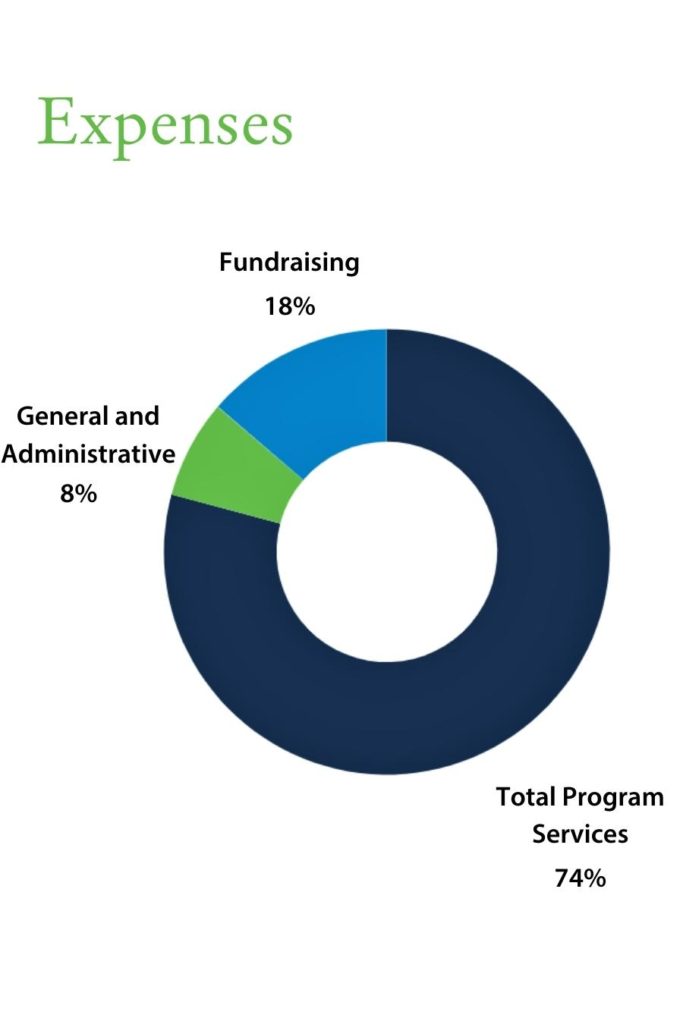
Board of Directors
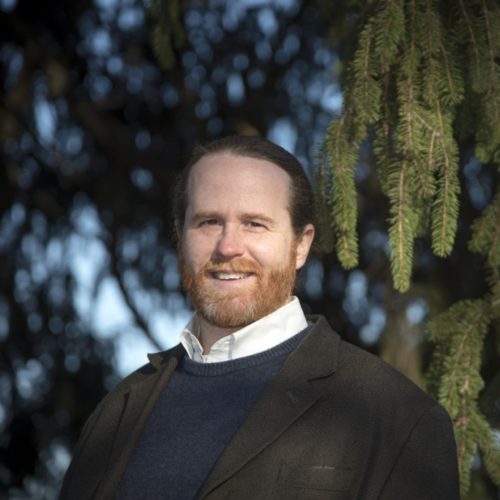
Aaron S. Allen, PhD
Director of the Environmental & Sustainability Program, University of North Carolina at Greensboro
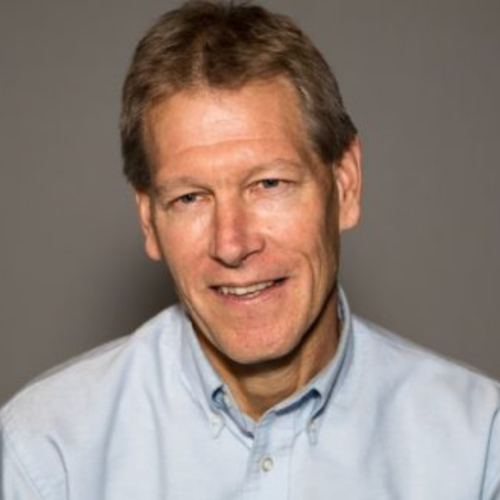
Mark Hathaway, MD, MPH (Secretary)
Director, Family Planning Services, Unity Health Care, Inc., & Sr. Technical Advisor for Reproductive Health, Jhpiego
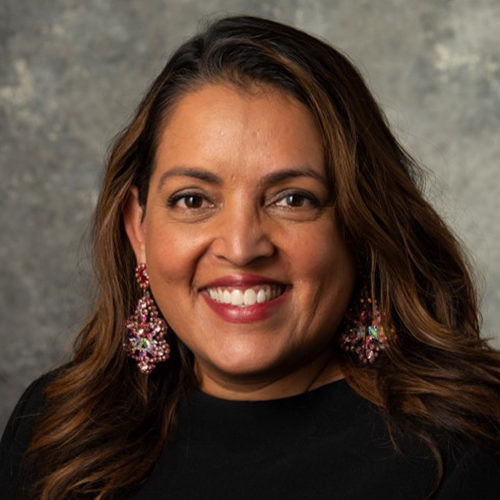
Seema Mohapatra, JD, MPH
M.D. Anderson Foundation Endowed Professor in Health Law, SMU Dedman School of Law
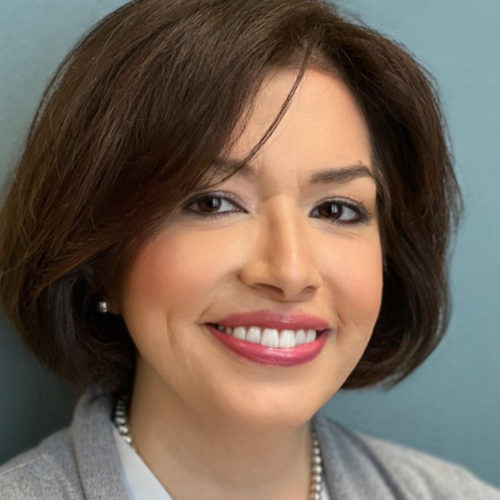
Estelle M. Raboni, MPH, MCHES (ex officio)
Director, Sexual & Reproductive Health, Bureau of Maternal, Infant & Reproductive Health NYC Dept. of Health & Mental Hygiene

